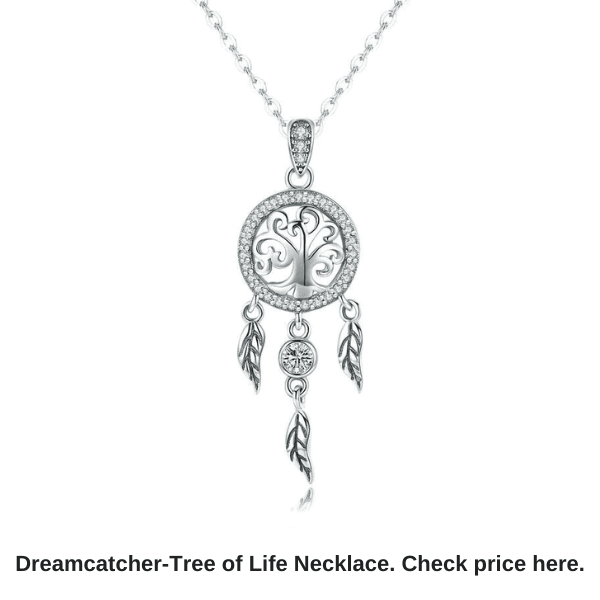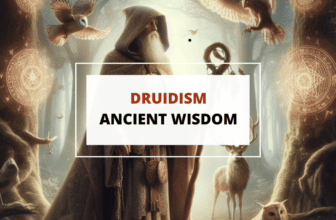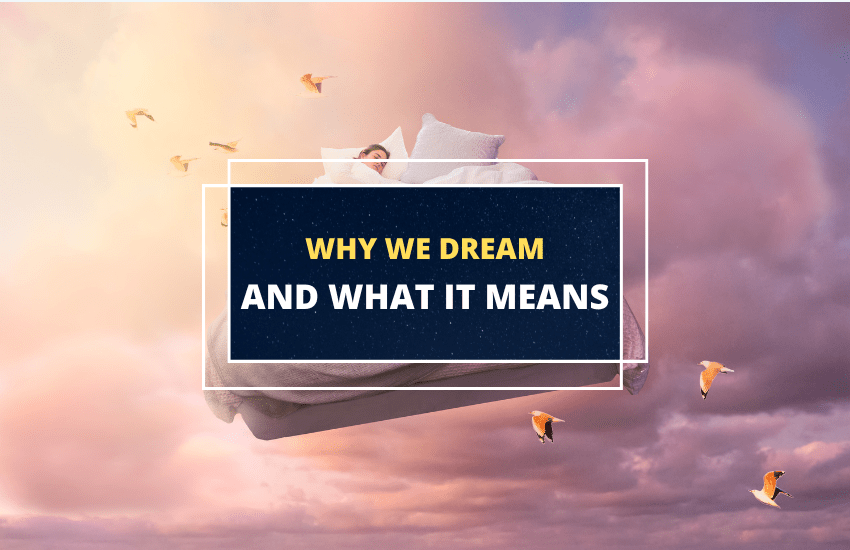
What are those pictures and sensations we feel in the middle of the night while fast asleep? How is such a surreal experience possible in the face of waking reality? How do you define a dream? Do dreams carry some sort of profound meaning or real impact on our lives?
These are questions that have plagued humanity for millennia. And it doesn’t seem like there will be any acceptable answers coming soon. Dreams appeal to everyone because everyone in the world has them.
Defining What a Dream Is
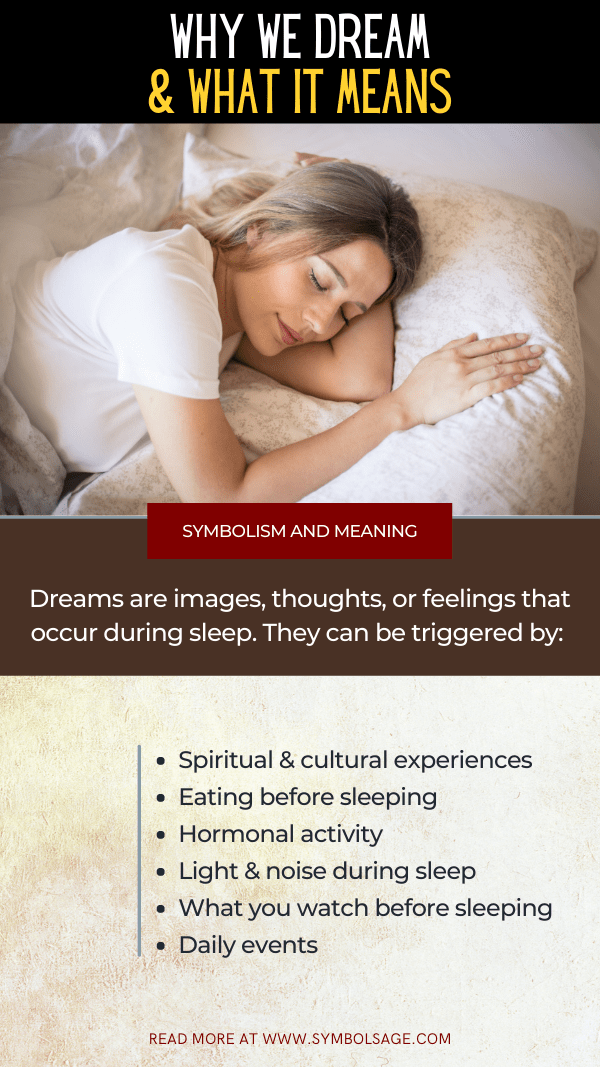
But what are dreams exactly? How do you define it in a tangible, cognitive way? As we’ll explore some of the more poignant definitions, it’s important for you to consider what dreams mean for you.
You would think after eons of dream reports, themes, and experiences we would have a handle or grasp on some solid definition. But scientists cannot fully agree on one all-encompassing way to convey what a dream actually is.
However, most people can agree with some degree of certainty that dreams are “perceptions, thoughts or emotions experienced during sleep.” Or if you would like a more clinical explanation, dreams are an event we perceive with the brain during the REM phase of normal sleep.
An article in the Scientific American supports this idea through the reproduction of an excerpt of “The Secret World of Sleep: The Surprising Science of the Mind at Rest” by Penelope A. Lewis. There’s a distinct admission that we all are cognizant of the meaning of a dream yet to put it into words is something of a frivolous pursuit.
Deeper Definitions of a Dream

But when you look at what a dream is from another, deeper angle, it’s an altered state of consciousness that is different from the waking condition. This is akin to meditation, trance, hypnosis, or the experience of hallucinogenic drugs. This is particularly true of nightmares and night terrors, where the horror and psychotic experiences are not usually something people witness in literal terms in waking reality.
At this point, it’s important to note that while professionals and experts are all good and well in their place, dreams are certainly one thing – a personal, first-person experience that comes from within. So, the definition is really up to you. Indeed, the purpose of dreams carries just as many interpretations, and these heavily influence the wide array of variations in definition.
Spiritual and Cultural Experiences
Some people think dreams are spiritual experiences and direct messages from cherished deities. Yet other people have a more scientific approach that’s just as ancient as the belief in the veracity of dreams. Even Hippocrates and Aristotle didn’t put much faith into dreams or think they came from a divine source.
What’s more, the ancient Egyptians, Greeks, Babylonians as well as modern Christians, Buddhists, Muslims, and Hindus saw dreams to be a fervent religious experience. When most people come at it from a spiritual angle, there’s no real need to define what a dream is. The message is the most important aspect.
What compounds this is the fact that there are many cultures around the world that do not think there’s a definitive line between dreaming and waking. The aborigines of Australia and Hindus in India are two such examples. To the aborigines, dreams are a way of entering the heroic past while connecting with ancestors and bringing it into the present.
Eons of Dreams
The oldest written record of a dream dates back to 2000 BC, in the “Epic of Gilgamesh.” Gilgamesh was a Babylonian king who dreamed he would meet his soon-to-come bosom buddy, Enkidu. This shows the constancy and continuity of the human experience: the concept of dreaming.
Scientific Explanations
In the world of science and psychology, the idea of dreams is somewhat split into separate concepts. One connects dream events to the human psyche and real-life experiences. The other relegates dreams to a by-product of physiological processes or a reaction to outside stimuli while sleeping.
Perhaps Dreams Have No Meaning
Still others believe it’s just a bunch of hogwash; that attempting to interpret dreams is something of a fool’s errand. These people tend to think it’s merely part of the human experience and has no other function or purpose.
There Is No Right or Wrong Perception
But what if dreams are all of these things at the same time? Most scientists and oneirologists agree that there is not one definitive way to pin down what dreams are or what they do. So this leaves a wide girth to ruminate on the possibilities. In other words, there’s no one right or wrong way to consider them.
The determining factors will include things like the kind of food you eat prior to sleeping, the stresses you experience throughout the day, if there’s any ambient noises while you sleep and any current hormonal functions.
The Influence of Food Before Sleeping

There is a whole world of studies and research addressing the concept of food consumption prior to sleeping and how they influence dreams. For instance, there is solid evidence that eating something like cheese can influence dreams. It was once believed to be an old wives’ tale that eating cheese before bed can affect the hypnagogic state. Even Charles Dickens mentions a “crumb of cheese” being the culprit for Ebenezer Scrooge’s dreams in his classic 1843 novella, “A Christmas Story.”
A study performed in 2005 by the British Cheese Board attempted to debunk this claim. They gave 200 subjects 20 grams (just over ½ ounce) of cheese 30 minutes prior to drifting off. The participants recorded their dreams and sleep quality. The results, albeit with no control or placebo group, found that 67% of the people did not have any nightmares.
Eating cheese resulted in pleasant reveries for most of the participants. The study took it even further and narrowed it down to specific types of cheese and what effect it had on the dream state. For instance, 80% of the people who ate Blue Stilton dreamed about speaking with animals like vegetarian crocodiles and warrior kittens. Cheddar cheese produced dreams about celebrities. However, Cheshire cheese produced the least number of memorable dreams.
Dreams as Byproducts of Hormonal Activity
And yet, it’s entirely possible that dreams are nothing more than a byproduct of hormonal activity. Ian Oswald, a scientific researcher at Manchester University and psychiatry professor at Edinburgh University, postulated that dreams help brain tissue heal along with bone, muscle and joint restoration.
Oswald pointed out that during non-REM sleep, growth hormones release into the bloodstream. When REM sets in, this activity decreases. Oswald proposed this hormonal release into the blood also affected the brain and therefore, dreams are nothing more than a byproduct of this hormonal activity.
The most compelling evidence for this can be seen with prepubescent males and peri-menopausal or menopausal women. These age groups have wild, vivid dreams because of how the hormonal changes frequently interrupt sleep. Sometimes these dreams are so profound, yet there’s no meaning behind them whatsoever. It’s just a result of hormonal shifting, which is sending strange images in the subconscious realms.
Light and Noise During Sleep
But there are some scientists who have good reason to speculate that outside stimuli occurring while you sleep may have a heavy influence on your dreams. If you have a TV on as you drift off on the couch, there are elements on the screen that can appear in the dream state. There have been several studies over the decades that provide convincing evidence for this.
Action in Other Realms of Existence
However, we can’t completely dismiss the possibility that our dreams can allow us to do things in other realms of existence that isn’t possible in physical reality. For instance, many people will dream of speaking to dead loved ones in dreams who instruct or show them something. Upon waking, they learn that the dream was precise.
A Vehicle for the Psyche
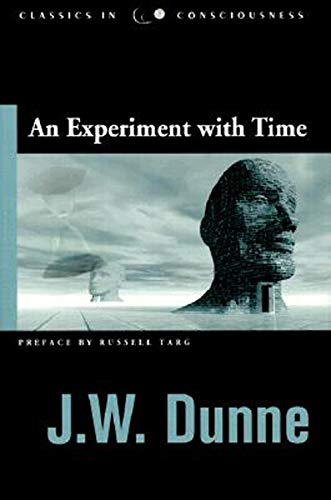
Yet there are many more who believe dreams are a vehicle for time travel and psychic visions. For instance, John William Dunne, who built the first British military airplane in 1906, was fascinated at the possibility for using dreams to travel in time, either in the future or to the past. After having several dreams that foretold the future and traveled to distant histories, he wrote a book about the prospect, “An Experiment with Time.”
Dreams Provide Creative Inspiration
There are many artists, writers, musicians, and other creative personalities who devised their greatest works as a direct result or influence from images received in dreamland. Robert Louis Stevenson, author of “Treasure Island,” sourced many of his short stories from dreams. 18th Century Italian composer, Giuseppe Tartini dreamt he found the devil hidden inside a bottle and this was the source of his most famous work, “The Devil’s Trill Sonata.”
Dreams Influence World Events
Many world events are the result of or have heavy influence from dreams. For instance, Xerxes’ invasion of Greece in 480 BC preceded a recurring dream where he was told by a tall and noble man to “continue to tread the path that you chose yesterday.” The result was a victory over the Spartans at Thermopylae and the sacking of Athens.
That’s not the only example. There are similar stories involving dreams from Alexander the Great and Julius Caesar as well as Joan of Arc.
In Brief
Dreams are some of the most mysterious and puzzling aspects of the human condition. Everyone has them. We can conceptualize what they are, but no one can say what they are, what they do or what their purpose is. Yet we have evidence for a vast array of how dreams can function.
While we can pinpoint certain things, such as dumping emotions or solving problems, we still don’t understand them as a whole. They take us into a surreal world that can have images ranging from horror to speaking with dead loved ones. Dreams can affect our real-life moods, artistic creations and receiving messages with the potential to change history.
While there are many convincing scientific studies, nothing pegs a finite definition of what a dream is. Therefore, it’s really up to the dreamer; there’s no right or wrong way to perceive them.



